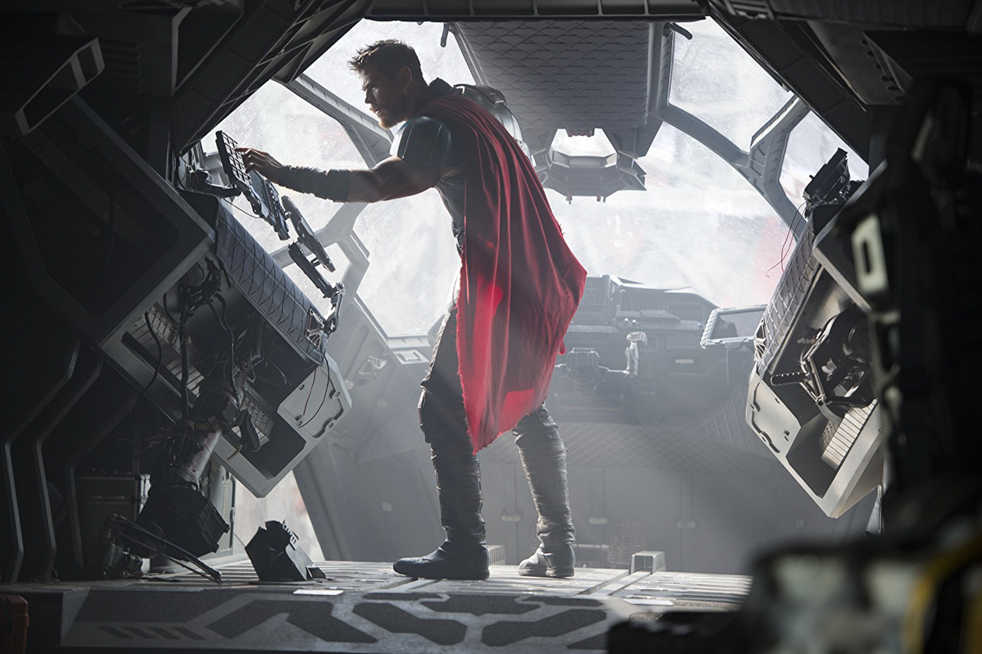At this point, most moviegoers should be familiar with the term “Marvel fatigue.” Almost a decade since the first “Iron Man” movie, the Marvel cinematic universe (MCU) is steaming onwards, consistently raking in several hundreds of millions of dollars with each release.
Despite this success, most viewers would agree that though Marvel’s films are consistently passable, they are uncomfortably formulaic at this point.
The hero is established; he or she has some big bad villain to defeat; the hero struggles, gangs up with a couple of quirky sidekicks, cracks many jokes along the way and defeats the villain in a ballistic, CGI final act.
Everything is tied up in a neat little bow. Every character gets a tidy character arc. The villain is destroyed, and a seed is planted for the next film in the MCU. So it goes.
On top of the marked familiarity that viewers experience between films, most MCU films are bland, colorless and otherwise unmemorable. There is little directing style; the soundtracks are utterly forgettable and the conflicts blur into one another.
Marvel is starting to wisen up to the popular sentiment surrounding their films. Yes, Marvel films are still massively successful, but one must ask: for how much longer? So Marvel has been trying to diversify by employing more outlandish stories and characters and by recruiting notable indie directors to add spark to their films. To a limited extent, it has worked.
“Thor: Ragnarok” is the most recent attempt by Marvel to diversify their portfolio. Marvel tapped New Zealander director, Taika Waititi (“Hunt for the Wilderpeople” and “What We do in the Shadows”), to direct this film, and his influence is certainly welcome.
Waititi is known for his quirky, deadpan humor that brought him success with his first two films. His sense of humor makes “Thor: Ragnarok” one of the most fun films to come out of the MCU. The movie, which is the third
in the largely forgettable Thor series, is both a reinvention of Thor and an attempt to reinvent the Marvel movie.
Similar to James Gunn’s efforts on “Guardians of the Galaxy,” Waititi takes Thor, previously the blandest character in the Avengers, and sends him on a wild space adventure where his character can fill himself out.
The film follows Thor (Chris Hemsworth, “The Huntsman”) and Loki (Tom Hiddleston, “The Night Manager”) as they are cast out of Asgard after their imprisoned sister Hela (Cate Blanchett, “I’m Not There”) conquers Asgard
for herself. Thor and Loki find themselves lost on the planet of Sakaar, a trash planet ruled by the
Grandmaster (Jeff Goldblum, “Jurassic Park”).
After being enslaved by the Grandmaster, Thor is forced to fight in gladiator matches for the planet’s entertainment. There, Thor finds allies in the Hulk (Mark Ruffalo, “Shutter Island”) and an alcoholic former Valkyrie (Tessa Thompson, “Westworld”) as he works to escape and save Asgard from Hela.
Waititi works intensely to use comedy to subvert the tropes of the Marvel movies. Villainous monologues, epic sacrifices, heroic exits and entrances are all undercut by sharp quips and jokes as the film’s heroes literally fall flat on their faces several times.
But it feels like Waititi has made two movies: one generic Marvel movie where a hero must defeat a villain and the other, an immensely fun romp through space with Jeff Goldblum and
a Hulk.
Every scene on Sakaar is so incredibly fun. Chris Hemsworth has added pathos, vulnerability and wackiness to the blond-haired, blue-eyed Ken doll that used to be Thor. He plays off his costars superbly.
Each interaction reads like a scene out of buddy-cop comedy as he riffs with a childish Hulk, a cynical Valkyrie and a sensitive, whiny Bruce Banner. To add to the entertainment, Jeff Goldblum has a wonderfully humorous presence as a nonchalant, oblivious authoritarian who steals every scene he is in.
Sakaar has color and feels different from the other Marvel worlds because of it. The Sakaar scenes distract from the fact that there is yet another cheesy bad guy waiting in the Asgard plotline.
For all of his efforts to infuse humor, Waititi’s humor simply cannot work in a Marvel movie if it must also integrate with the generic Marvel “Big Bad” plotline that dominates the scenes with Hela and Asgard.
The humor feels immensely out of place every time the audience returns to Asgard; it is hard for viewers to take the main conflict with Hela seriously. Blanchett does her best with the character, but Hela is still little more than another Marvel villain who decided that she wanted to simply be evil when she grew up.
Ultimately, Waititi’s film falls flat not because of his humor but because Marvel still refuses to relinquish its formula and let the humor, style and vision of directors like Waititi breathe.
